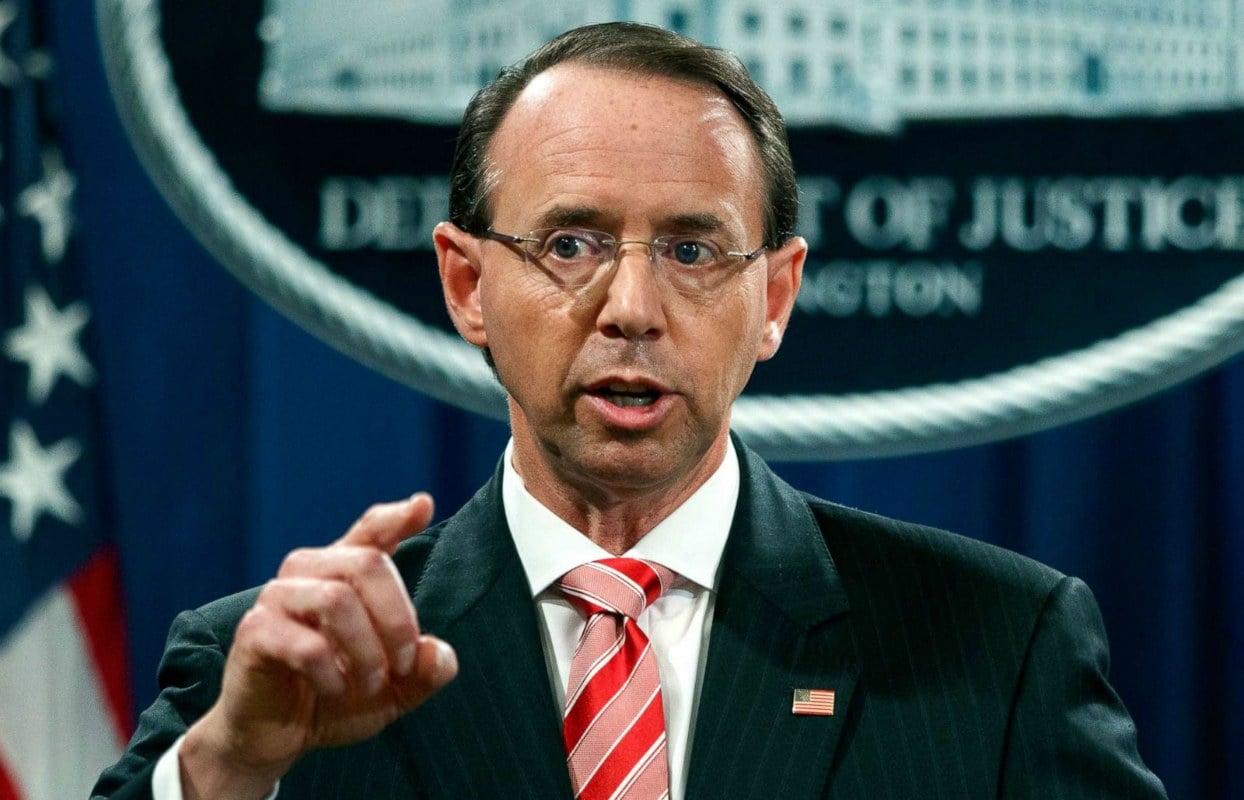Deputy Attorney General Rod Rosenstein Resignation Could Impact Wire Act Outcome
Posted on: April 30, 2019, 08:04h.
Last updated on: April 30, 2019, 08:04h.
Deputy Attorney General Rod Rosenstein has submitted his letter of resignation to President Donald Trump, and his exit could reshape the Department of Justice’s (DOJ) final interpretation of the 1961 Wire Act.

It was Rosenstein who agreed to have his Office of Legal Counsel re-review a 2011 opinion issued by the very same department that concluded the longstanding federal law banned the transmission of interstate wagers relating to sports betting, but not all forms of gambling. The decision gave states the right to conduct online lottery games and decide their own rules on intrastate internet gambling.
However, DOJ Office of Legal Counsel Assistant AG Steven Engel concluded late last year – and his opinion released in January – that the 2011 interpretation was in error.
Based upon the plain language of the statute, however, we reach a different result. While the Wire Act is not a model of artful drafting, we conclude that the words of the statute are sufficiently clear and … sweep beyond sports gambling,” Engel opined.
The DOJ has delayed implementation of the agency’s new position, as legal challenges across the country persist. The 2018 Wire Act opinion threatens interstate lottery games like Powerball and Mega Millions, online gambling, and cross-state interactive poker pooling.
Rosenstein Wires
The DOJ deputy attorney general’s resignation ends one of the more contentious relationships the president has had with someone in his administration. After Trump fired then-Attorney General James Comey, Rosenstein appointed special counsel Robert Mueller to investigate alleged Russian interference with the 2016 presidential election.
The deputy AG even considered wearing a “wire” to record his private conversations with the president in the days after Comey’s dismissal. Media outlets including the Associated Press later confirmed the audio taping scheme.
However, Rosenstein ultimately was an ally of the president. He agreed with Attorney General William Barr following the Mueller investigation that Trump did not interfere with the Russia probe, and that there was no collusion.
Rosenstein told Trump in his resignation, “I am grateful to you for the opportunity to serve; for the courtesy and humor you often display in our personal conversations; and for the goals you set in your inaugural address: patriotism, unity, safety, education, and prosperity, because ‘a nation exists to serve its citizens.'”
Wire Act Future
The decision to direct Engel and the Office of Legal Counsel to reconsider the scope of the Wire Act was another sign that Rosenstein was in the president’s corner.
Billionaire Sheldon Adelson – the founder and CEO of the Las Vegas Sands casino empire – has made it his personal mission to ban internet gambling. The 85-year-old has also been the Republican Party’s largest donor in each of the last two election cycles.
Trump will need Adelson’s money again in 2020, as liberal Democrats such as Michael Bloomberg are ready to spend heavily to prevent a second term. But with Rosenstein out, the question must be asked whether his successor will be as inclined to continue with the Wire Act proceedings – which is shaping up to be one of the more complicated legal interpretations of a federal law in decades.
Related News Articles
Minnesota Sports Betting Bill Scores First Victory
Most Popular
This Pizza & Wings Costs $653 at Allegiant VIP Box in Vegas!
Sphere Threat Prompts Dolan to End Oak View Agreement
MGM Springfield Casino Evacuated Following Weekend Blaze
Fairfax County Officials Say No NoVA Casino in Affluent Northern Virginia
Most Commented
-
VEGAS MYTHS RE-BUSTED: Casinos Pump in Extra Oxygen
— November 15, 2024 — 4 Comments -
VEGAS MYTHS RE-BUSTED: The Final Resting Place of Whiskey Pete
— October 25, 2024 — 3 Comments
















No comments yet